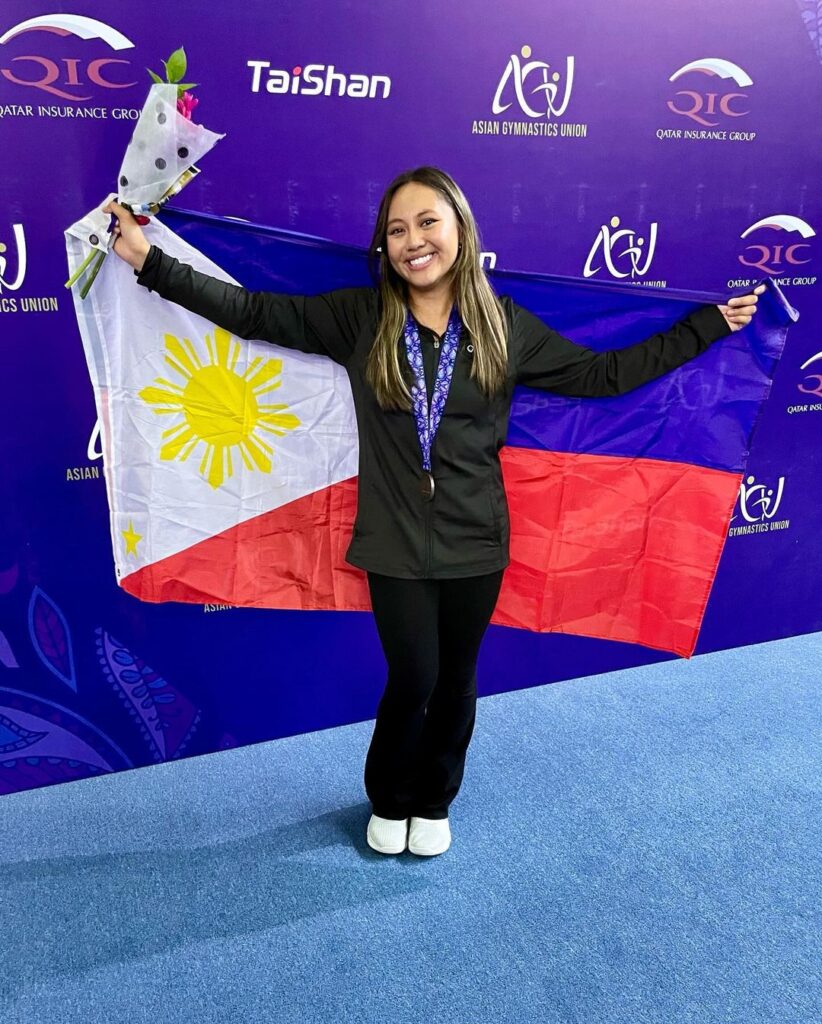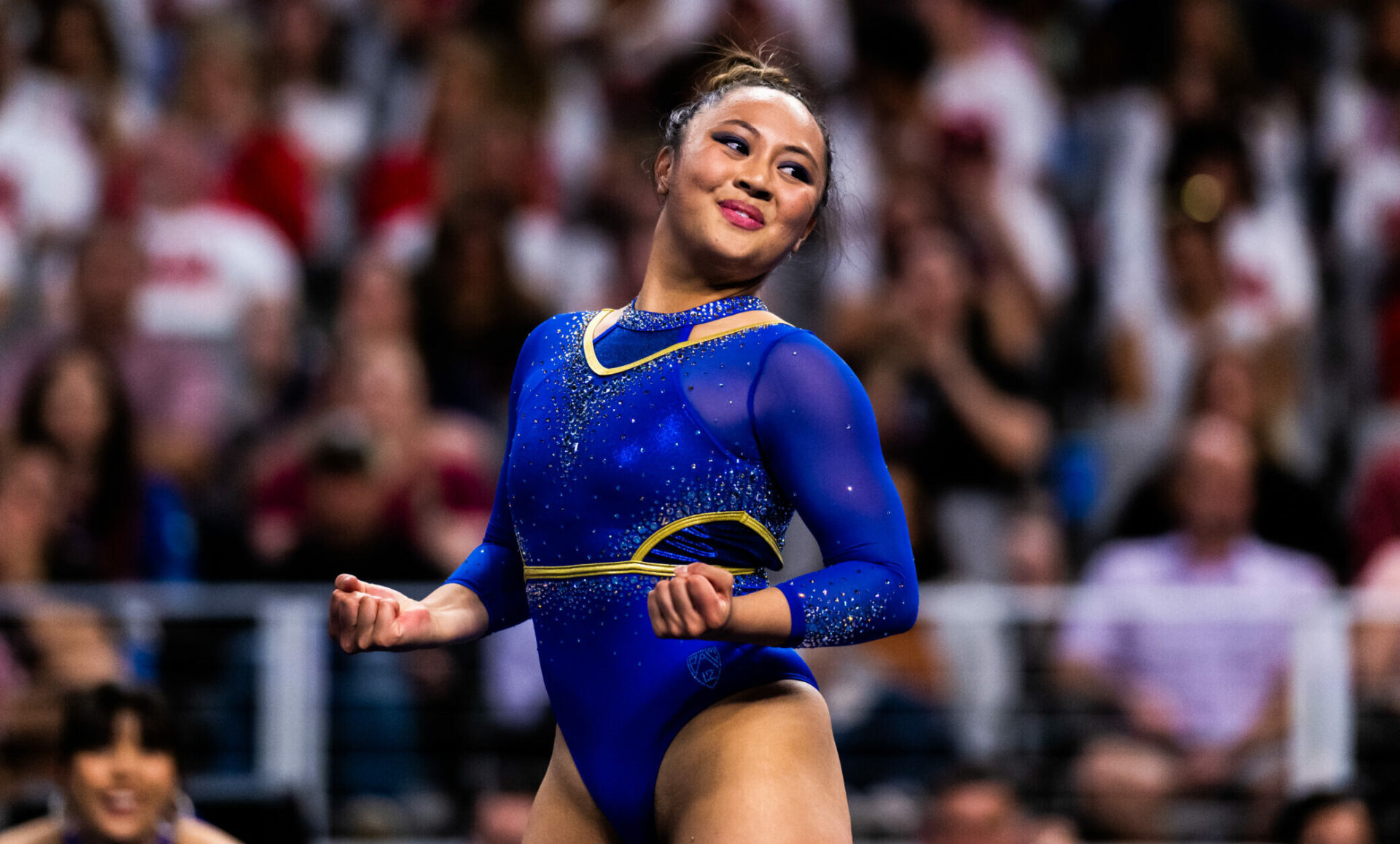Emma Malabuyo’s journey to the 2024 Paris Olympics marks a significant milestone not only for her personal career but also for the future of Filipino gymnastics. As one of the first female gymnasts to represent the Philippines in the Olympics in 60 years, Malabuyo’s story is one of perseverance, cultural pride, and the power of representation. This article delves into her Olympic debut, her impact on Filipino gymnastics, and the broader implications of her achievements for aspiring athletes of Filipino descent.
The Olympic Dream Realized

From UCLA to Paris: Malabuyo’s Path to the Olympics
Emma Malabuyo’s road to the Olympics was far from conventional. After narrowly missing out on the U.S. Olympic team in 2021, where she served as an alternate, Malabuyo thought her days of elite international competition were behind her. However, fate had other plans. The Filipino gymnastics federation approached her with an opportunity to represent her grandparents’ home country, reigniting her Olympic aspirations.
Malabuyo’s journey to qualify for the Philippines was not without its challenges. She narrowly missed securing a spot through the World Cup series and faced setbacks in qualifying as a specialist. Undeterred, she persevered and ultimately earned her position as an all-arounder at the Asian Championships in May, just months before the Paris Games.
This remarkable comeback story showcases Malabuyo’s determination and adaptability. Her transition from competing for the United States to representing the Philippines highlights the complex nature of identity for many athletes with diverse cultural backgrounds.
The Olympic Experience: More Than Just Competition
For Malabuyo, the Olympic experience transcended the boundaries of athletic competition. From the moment she arrived in Paris, she was immersed in the unique atmosphere that only the Olympic Games can provide. The opening ceremonies, held on the Seine River, offered a magical start to her Olympic journey. Despite standing in the rain for two hours, Malabuyo cherished the opportunity to dance and cheer with her Filipino teammates on their designated boat.
This experience underscores the camaraderie and national pride that the Olympics foster. For Malabuyo, it was a chance to connect with her Filipino heritage on a global stage, surrounded by athletes from around the world. The ceremonies served as a powerful reminder of the unifying power of sport and the honor of representing one’s country.
A Historic Performance: Breaking Barriers and Setting Records
On the day of her Olympic debut, Malabuyo felt the weight of history on her shoulders. As she prepared in the corridors of Bercy Arena, the reality of her accomplishment began to sink in. The sight of Filipino flags in the stands and the Olympic rings on every mat brought tears to her eyes, a testament to the significance of the moment.
Malabuyo’s performance in the all-around qualifications was a mix of triumphs and challenges. While she acknowledged that it wasn’t her best showing, her score of 51.099 tied for the highest among the three Filipina gymnasts competing. This achievement is particularly noteworthy given that Malabuyo, along with her teammates Aleah Finnegan and Levi Ruivivar, are the first female gymnasts to represent the Philippines in the Olympics in six decades.
Despite some wobbles on the beam and a large step on her floor routine landing, Malabuyo concluded her Olympic debut with a perfectly stuck dismount on the uneven bars. This final moment of excellence was a fitting end to her competition, prompting her coach, Janelle McDonald, to celebrate enthusiastically. For Malabuyo, sticking that landing was the “cherry on top,” a physical manifestation of her status as an Olympian.
More Than a Competition: The Impact of Representation
Breaking Ground: The Significance of Filipino Representation in Gymnastics
The presence of Malabuyo, Finnegan, and Ruivivar at the Olympics represents a watershed moment for Filipino gymnastics. Their participation breaks a 60-year drought of female Filipino gymnasts at the Olympic level, signaling a potential renaissance for the sport in the Philippines. This achievement is not just about athletic performance; it’s about visibility and inspiration for an entire generation of young Filipinos.
Representation in sports, especially at the Olympic level, can have far-reaching effects. It provides tangible role models for young athletes, demonstrating that success at the highest levels is possible regardless of one’s background. For Filipino and Filipino-American youth, seeing gymnasts who share their heritage competing on the world stage can be a powerful motivator to pursue their own athletic dreams.
Moreover, the success of these athletes can lead to increased support and investment in gymnastics programs within the Philippines and Filipino communities abroad. This could create a positive feedback loop, where improved resources lead to better training, which in turn produces more successful athletes, further inspiring the next generation.
Navigating Identity: The Complexity of Cultural Representation
The participation of Malabuyo, Finnegan, and Ruivivar in the Olympics under the Filipino flag has not been without controversy. As American-born athletes representing the Philippines, they have faced questions about their authenticity as Filipino representatives. This situation highlights the complex nature of identity and representation in international sports.
Malabuyo’s response to these criticisms is rooted in her deep connection to Filipino culture. Despite not being born in the Philippines, she grew up immersed in Filipino traditions, from the food she ate to the lively family gatherings she attended. Her decision to represent the Philippines is a reflection of her desire to honor her heritage and create a lasting impact on the sport in her ancestral homeland.
This scenario is not unique to gymnastics or the Philippines. Many countries benefit from athletes with diverse backgrounds, often leading to debates about nationality, eligibility, and cultural authenticity. Malabuyo’s experience serves as a case study in how athletes can navigate these complex issues while staying true to their identity and goals.
Beyond the Mat: Malabuyo’s Plans to Give Back
Malabuyo’s commitment to her Filipino heritage extends beyond her Olympic performance. Following the Games, she plans to visit the Philippines, where she will conduct dance and gymnastics workshops. This initiative demonstrates her dedication to nurturing the next generation of Filipino athletes and using her platform to make a tangible difference.
By sharing her skills and experiences with young people in the Philippines, Malabuyo is helping to bridge the gap between her American upbringing and her Filipino roots. These workshops have the potential to inspire countless young athletes, providing them with not only technical skills but also the confidence to pursue their dreams on an international stage.
Furthermore, Malabuyo’s engagement with the Filipino community serves as a powerful example of how athletes can use their success to give back to their heritage. It underscores the idea that representation is not just about competing under a flag, but about actively contributing to the growth and development of the sport in the country one represents.
Emma Malabuyo’s journey to the 2024 Paris Olympics is more than just a personal achievement; it represents a pivotal moment for Filipino gymnastics and the power of cultural representation in sports. Her story embodies the complexities of identity, the challenges of elite athletics, and the profound impact that visibility can have on inspiring future generations.
As one of the first female gymnasts to represent the Philippines at the Olympics in 60 years, Malabuyo has broken barriers and set a new standard for what is possible. Her performance, while not without its challenges, demonstrated the skill and determination that brought her to this global stage. The perfectly stuck dismount on the uneven bars served as a fitting conclusion to her Olympic debut, a physical manifestation of her status as an Olympian.
Beyond her athletic achievements, Malabuyo’s impact extends to the broader Filipino community. By embracing her heritage and using her platform to inspire and educate, she is contributing to the growth of gymnastics in the Philippines and among Filipino communities worldwide. Her planned visit to conduct workshops in the Philippines underscores her commitment to nurturing the next generation of athletes.
Malabuyo’s story also highlights the evolving nature of cultural identity in sports. As an American-born athlete representing the Philippines, she navigates complex questions of authenticity and representation. Her experience serves as a testament to the rich tapestry of cultural heritage that many athletes bring to international competition.
In conclusion, Emma Malabuyo’s Olympic journey is a powerful reminder of the importance of representation in sports. Her achievements, both on and off the mat, have the potential to inspire generations of Filipina gymnasts to come. As she continues to build on her Olympic experience, Malabuyo stands as a beacon of hope and possibility for young athletes around the world, proving that with determination, skill, and cultural pride, dreams of Olympic glory can indeed become reality.
